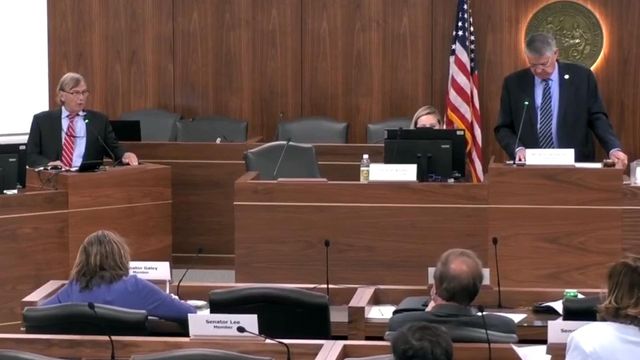Legislative Republicans look to rein in governor's emergency powers
Gov. Roy Cooper says he's willing to talk about adjusting emergency powers, but only after the pandemic.
Posted — UpdatedSenate Bill 346 would put some of that power with the Council of State, the group of 10 statewide elected officials in North Carolina government. But some it would cede to the General Assembly, limiting the governor's ability to close businesses or take other major steps across the state to the first 10 days of an emergency.
After that, he'd need sign off from the Council of State for an executive order to stand a total of 45 days. After that, he'd need buy-in from the state legislature.
Republican lawmakers have discussed a change like this for months, disturbed by Gov. Roy Cooper's now year-long edicts limiting businesses and other aspects of life during the ongoing pandemic. It's time, they argue, for a re-balancing.
Legislative Democrats opposed the measure. Sen. Natasha Marcus, D-Mecklenburg, said the bill was like "throwing banana peels" in the governor's path as he tries to navigate the pandemic. In an afternoon coronavirus briefing, Cooper said he was willing to talk about the split between executive and legislative powers, but after the pandemic.
Senate Rules Chairman Bill Rabon, a bill sponsor, indicated the bill's meant to deal with future emergencies, not this pandemic. The bill's language doesn't limit it, though, saying the measure would take effect as soon as it becomes law.
That language may change as the bill moves forward, according to Pat Ryan, spokesman for Republican leadership in the Senate.
At any rate, Rabon, R-Brunswick, said the bill is not meant to be a referendum on Cooper's handling of the pandemic.
“It just sets forth a mechanism that, going forward, we’re going to do things a little differently," he said.
Another pending proposl asks voters to amend the North Carolina constitution, in a statewide referendum, to limit the governor's emergency powers to 30 days or to 60 days with concurrence of the Council of State.
• Credits
Copyright 2024 by Capitol Broadcasting Company. All rights reserved. This material may not be published, broadcast, rewritten or redistributed.





